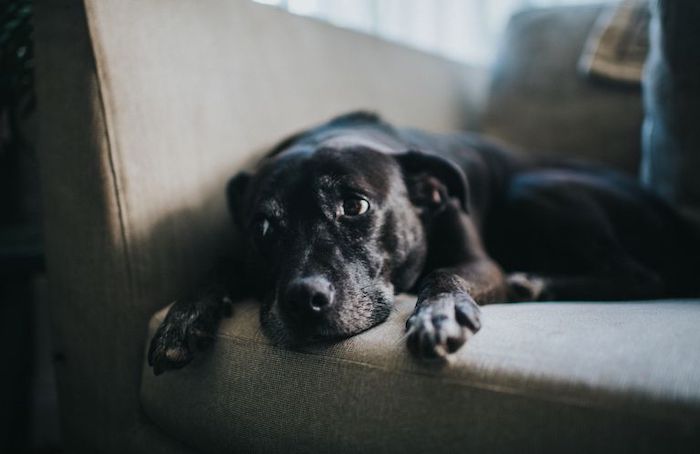We ask the experts for their advice
For dogs, the loss of a human or another pet can have a traumatic impact on their lives. Much like humans, dogs grieve the absence of someone they love so it’s important we know how to help them.
Dogs experiencing a loss can show signs of confusion, fear or depression. If it’s the loss of their owner, you may notice dogs trying to figure out where that person has gone. If it’s another pet who has died, your dog may spend more time in their bed or favourite space, often with the hope that their friend may return.
A recent news story highlighted this sad truth when a dog owner shared heartbreaking images of her dog regularly returning to the bed where his best canine friend once slept. The dog left the same space for his deceased friend to sleep in night after night, despite him passing away a year before. Tugging on the heart strings of many, it created a discussion around how dogs grieve.
Claire Stallard, Behaviour and Training Manager at the Blue Cross tells Country Living: “The loss of a person or another pet may have a huge impact on your existing pet’s behaviour.
“Not only might they experience grief themselves due to the absence of a family member, they are also likely to pick up on the subtle changes in your behaviour too during this difficult time.”
What are the signs your dog is grieving?
Some dogs may show visible signs of grief, while others may completely withdraw and mourn quietly.
“Dogs’ ability to form strong social attachments with us and each other means they can have difficulty coping when they are suddenly separated from their companions. If their owner is grieving, the change in their behaviour and their normal routine can also have an impact,” Lisa Hens, RSPCA dog welfare expert tells Country Living.
“This varies greatly depending on the individual dog, and some owners report that, when one dog dies, the remaining dog seems very affected and may stop eating, for example. While others report that the remaining dog seems unaffected,” Lisa says.
Some of the signs that will indicate a change in your pet’s behaviour include…
- Losing their appetite
- They might cry a lot or be searching in areas where they expect the deceased family member to be
- They might be wanting your attention more than usual
- More time sleeping
- Changes in apetite
- Loss of interest in going for walks
How do I know if my dog has separation anxiety?
“Sadly, many dogs simply don’t know how to cope when their owner isn’t at home. Some dogs will bark or destroy things to show their feelings. While, others will simply sit there quietly, feeling worried,” Lisa from the RSPCA tells Country Living.
“This can happen on a day to day basis, not just after loss, and research suggests that 8 out of 10 dogs find it hard to cope when left alone, and worryingly half of these won’t show any signs, which means you may not always know if there’s a problem.”
What can you do to help your dog?
“Try not to worry too much about your pet’s behaviour during this time and try to stick to their familiar routine as much as possible. Losing a family member can be a difficult time for everyone, our pets included, but grieving is a natural behaviour. Like us, they can recover and move on in time with the support and care of their loving owners,” Claire says.
Remember, always talk to your vet if you are overly worried about your pet’s health and behaviour.
Some of the practical ways you can help include…
- Be observant for any change in their behaviour
- Try to keep to their normal routine as much as you can
- Be patient, as it will take time for them to adjust to their new situation
- They may need more quality time with you
Should you get another dog?
If it’s a family dog who has died, it can be tempting to get another one quickly so that your surviving pet has a companion. “Try not to rush into this decision too quickly, and if you do decide to get another pet, take things slowly, making sure the introductions are carried out carefully,” Claire explains.
Complete Article ↪HERE↩!


